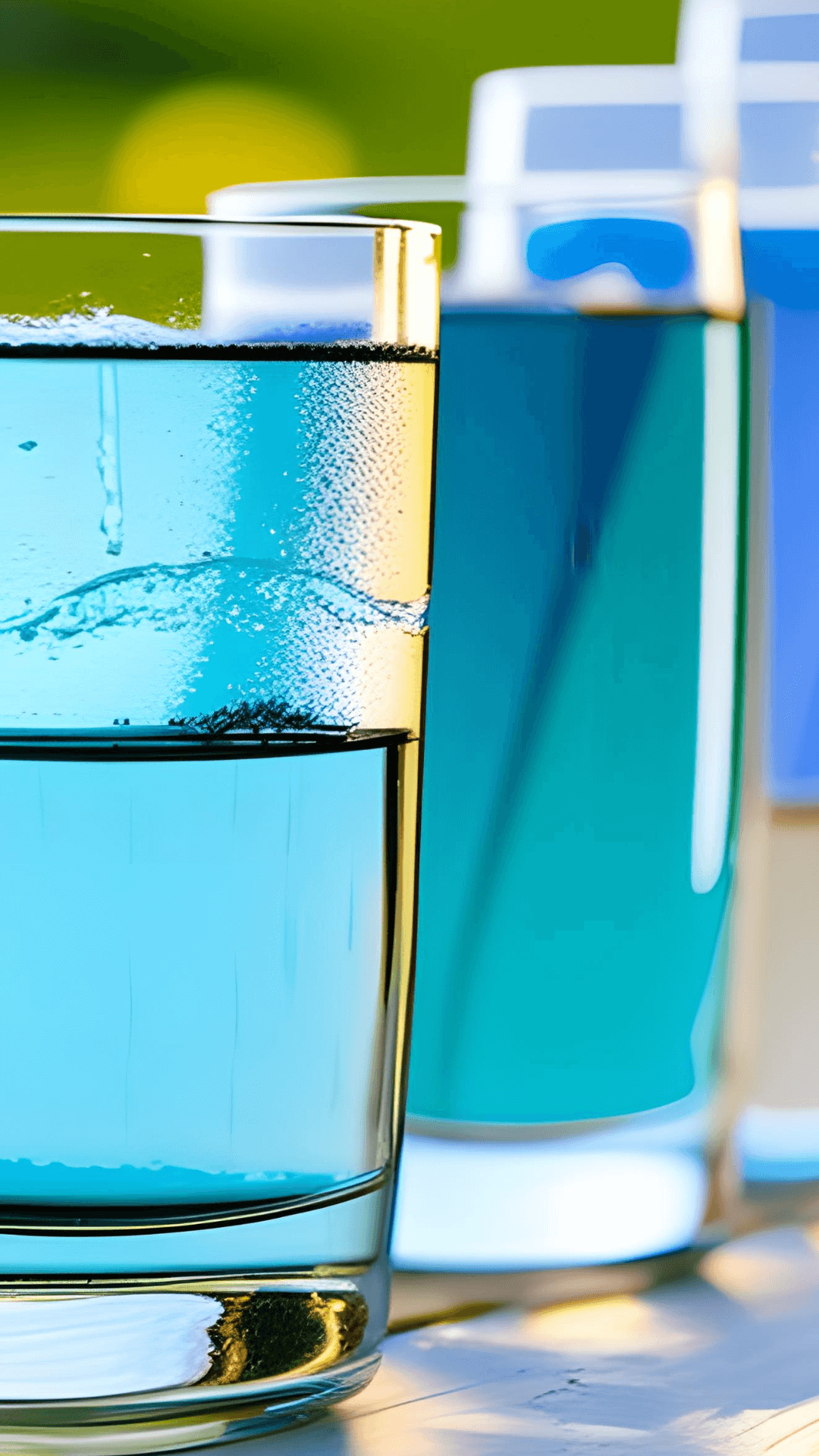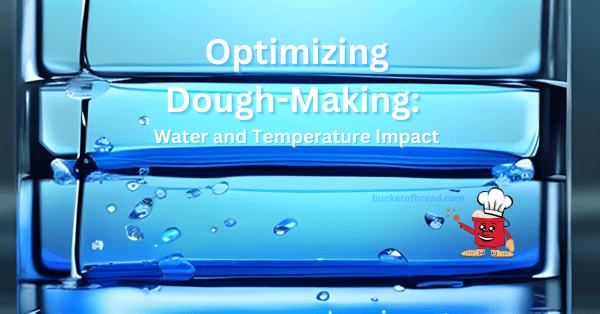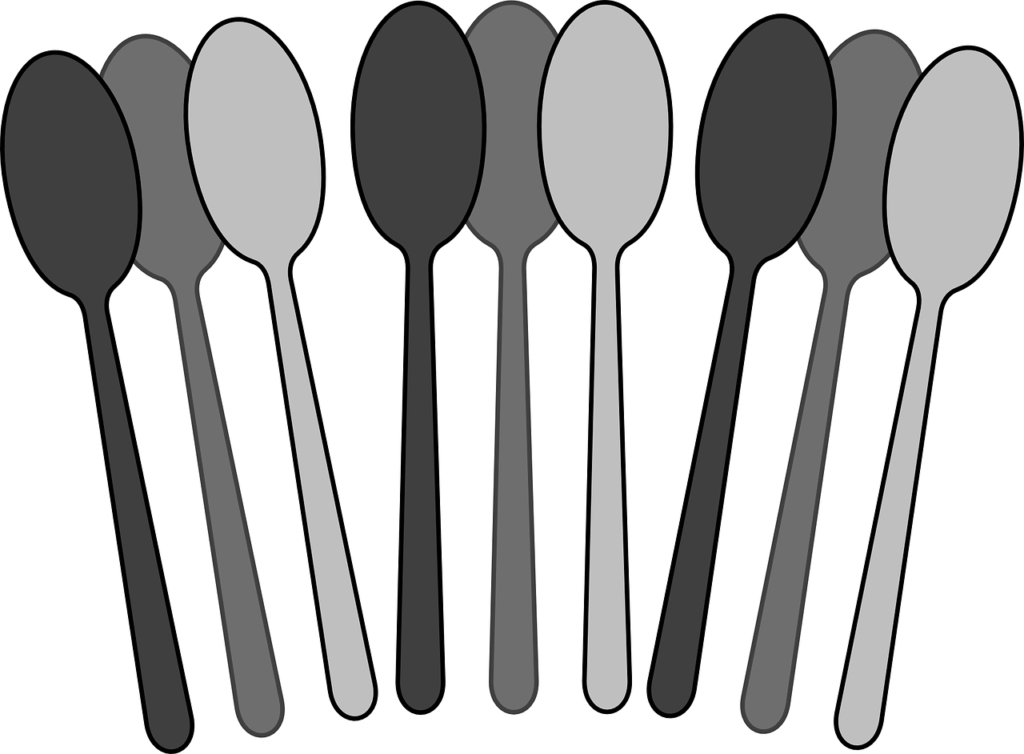Dough Making Magic:
At BucketofBread.com, we strive to provide our customers with convenient and clean-label meal prep kits for dough making. This allows you to create culinary masterpieces with ease. Our signature product is a gallon-sized bucket filled with gourmet quality vegan-friendly baking mixes that requires just the addition of water. In this article, we will explore how the type of water and temperature used with our baking mixes can impact yeast activation, ensuring the best results for your homemade dough creations.
Water Quality for Optimal Dough Making Preparation:
Water plays a crucial role in our baking mix. This essential liquid acts as the solvent that dissolves our certified organic non-GMO ingredients and facilitates the necessary chemical reactions. Considering the quality of water used is essential to achieve the desired outcome.
- Pure and Clean Water:
To ensure the best performance of our baking mix, we recommend using pure and clean water. Bucket of Bread has tested and designed our dough to be versatile. This allows you to experiment with different water sources, but using filtered or bottled water can help eliminate any potential impurities or additives that might affect yeast activity.
- pH Level Consideration:
Maintaining an optimal pH level is crucial for yeast activation. Our baking mix is carefully formulated to create an environment conducive to yeast growth. However, testing the pH level of your water and adjusting it, if necessary, can further enhance yeast activity and improve the quality of your dough.
Water Temperature and Yeast Activation:
Not surprisingly, the temperature of the water used to activate yeast significantly influences the growth and fermentation rate of our baking mix. Understanding how temperature impacts yeast can help you achieve consistent and exceptional results.
- Activating the Yeast:
To activate the yeast in our baking mix, we recommend using warm water with a temperature range of 95°F to 110°F (35°C to 43°C). Warm water stimulates yeast activity, allowing it to feed on the carbohydrates present in the dough, resulting in the production of carbon dioxide and alcohol. It is important to avoid excessively hot water that can kill the yeast, as well as cold water that may not effectively activate it.
- Dough Fermentation:
Once the yeast is activated, it is mixed with our baking mix to create the dough. The temperature of the dough during fermentation plays a crucial role in developing the flavor and texture of the final product. Higher temperatures facilitate quicker proofing, potentially enhancing flavor development. On the other hand, cooler temperatures can lead to slower fermentation, allowing for more complex flavors to develop over time.

Additional Considerations for Optimal Dough Making Results:
While water type and temperature are vital factors in dough preparation, here are a few additional points to ensure the best outcomes with our baking mix:
- Consistency and Replication:
Maintaining consistency in measurements and replicating the same water type and temperature conditions will help you refine your dough-making process and achieve the desired results consistently.
- Experimentation and Creativity:
Our baking mix offers endless possibilities, allowing you to bake a wide range of delicious treats. Feel free to experiment with different water types and temperatures to discover unique flavors and textures that suit your preferences.
Water Testing and Adjustments: Ensuring Optimal Dough Preparation
- Testing Water Quality:
The quality of water used in dough making can significantly impact the final result. Before embarking on your baking journey, it is essential to assess the quality of your tap water. Utilize water testing kits or consult local water reports to identify any potential impurities or factors that might affect yeast activity. Understanding your water quality will help you make informed decisions to achieve the best possible dough.
- Adjusting Water Quality:
If your tap water falls short in terms of quality or contains elements that might hinder yeast activation, there are several adjustments you can make to optimize your dough preparation. Consider investing in a reliable water filtration system or pitcher to remove impurities and improve taste. This step ensures that your water provides a clean canvas for your yeast to thrive.
- Dechlorination:
Dechlorination is another crucial adjustment to enhance water quality. Chlorine, commonly found in tap water, can impede yeast activity. To dechlorinate, allow the water to sit uncovered for a few hours, allowing the chlorine to dissipate naturally. Alternatively, you can use dechlorination tablets, readily available in stores, to neutralize the chlorine content.
Advanced Water Modification Techniques
For those seeking to explore more advanced techniques, mineral additives can be introduced to modify water characteristics. Adjusting mineral content can influence yeast fermentation and flavor development, creating unique and delightful baking experiences. Experimentation with different mineral additives, such as calcium sulfate or magnesium sulfate, can provide exciting variations in your dough.
By testing and adjusting your water quality, you empower yourself to create an optimal environment for yeast activation and dough preparation. Taking these steps will elevate your bread-making prowess and ensure consistently outstanding results with our Bucket of Bread baking mixes.
Consideration for Dough Making Creations
Overall, at BucketofBread.com, we provide you with a clean-label baking mix that simplifies the dough making process. By considering the quality of water used and understanding the impact of temperature on yeast activation, you can create exceptional homemade breads, cinnamon buns, pizzas, breadsticks, and more.
Beyond Baking
Our mission extends beyond baking, as profits from our products support charities combatting hunger and fighting food insecurity in America. Join us in our efforts while enjoying the convenience and culinary delights our baking mixes offer. For any inquiries, send a note through the website at https://bucketofbread.com/contact or just stop by!
Interested in looking more into this topic? Here’s an easy Google search you can use.




